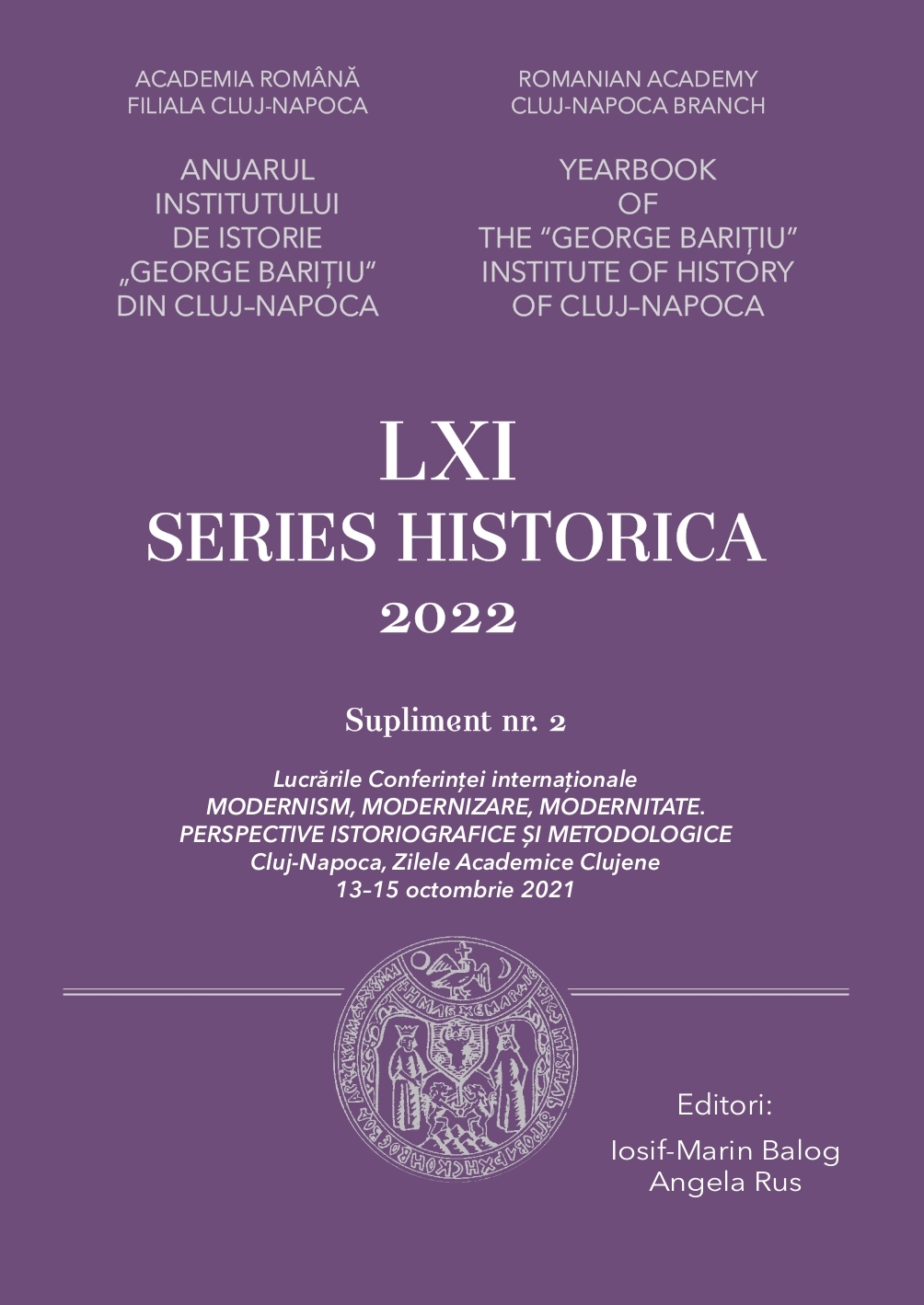Marele principat al Transilvaniei între codurile de legi austriece și dreptul ungar: Avatarurile unei modernizări legislative (1849-1867)
The Grand Principality of Transylvania between Austrian LegalCodes and Hungarian Law: Avatars of a Legislative Modernization (1849-1867)
Author(s): Lóránd MádlySubject(s): History of Law, Government/Political systems, 19th Century
Published by: Editura Academiei Române
Keywords: Transylvania; neoabsolutism; liberalism; Karl Umlauff; prisons; law codes;
Summary/Abstract: The historical evolution of the legislation applicable in Transylvania reveals an interesting and changing picture, in a specific way for a peripheral province located at the intersection of several historical influences. After an evolution marked by the preponderance of feudal law, especially the entry under the reign of Habsburg brought with it a series of reforms to modernize the legal provisions and their application, which led to profound changes in social life and mentality of the inhabitants. In this context, one of the most important trends was codification, along with the introduction of Enlightenment precepts. After the Theresian and Josephine reforms, the Austrian Law Codes were introduced only in the neo-absolutist decade, when direct political dependence on Vienna was able to defeat the primacy of Hungarian law. The moment of cleavage, in which the most politically based differences and tendencies in the choice for one or the other of the systems were most evident, was offered by the years of liberalism, in which there were also moments of uncertainty in the type of legislation that will be able to apply: the central authority, represented by the court chancellor and the provincial governor insisted on keeping the Austrian Codes as they were implemented, with the necessary changes, in the fifties, while the Hungarian political movement wanted the application of Hungarian law. This paper, supplemented by a brief presentation of a lawsuit against money counterfeiters, illustrates all these aspects, mainly on aspects of the introduction of new law codes and the respective courts, an undertaking in which Karl Umlauff played an important role, and with brief considerations in the field of law enforcement and the prison system, trying to reveal lesser known elements of the oscillating evolution of Transylvania between several political influences, on the road to modernizing legislation.
Journal: Anuarul Institutului de Istorie »George Bariţiu« - Series HISTORICA - Supliment
- Issue Year: LXI/2022
- Issue No: 2
- Page Range: 101-114
- Page Count: 14
- Language: Romanian

